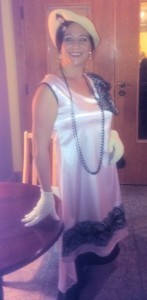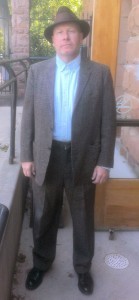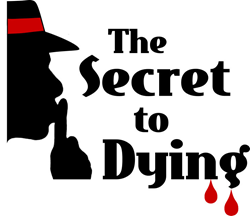Carol Van Natta's Blog, page 34
September 30, 2014
The Cover for Overload Flux is Here
The cover of my upcoming science fiction-action-romance novel, Overload Flux, is finished, so I’m revealing it gloating about it here. The novel will be available for Kindle, Nook, and Kobo by October 17, and on iTunes soon thereafter.

Overload Flux (A Central Galactic Concordance Novel)
Hidden talents, deadly enemies… two strangers must learn trust to survive.
DESCRIPTION: Stability has reigned for throughout the Central Galactic Concordance for two hundred years, but trouble is brewing. A new pandemic is affecting hundreds of civilized planets, and someone is stealing the vaccine…
Brilliant crime scene investigator Luka Foxe has a problem. His hidden mental talent is out of control, making him barely able to function in the aftermath of violence, and the body count is rising. The convoluted trail leads to a corrupt pharma industry and the possibility of an illegal planet-sized laboratory. In the face of increasing threats, Luka must rely on an enigmatic, lethal woman he just met, but she has enough secrets to drag a ship down from orbit.
Mairwen Morganthur hides extraordinary skills under the guise of a dull night-shift guard. The last thing she wants is to provide personal security for a hot-shot investigator, or to be plunged into a murky case involving deaths, murderous mercenaries, sabotage, treachery, and the military covert operations division that would love to discover she’s still alive.
Two more lives in a rising death count won’t bother their enemies one bit. Their only hope for survival is revealing their dark secrets and, much harder, learning to trust one another.
_ _ _ _ _
P.S. The artist is Stephen Bryant at SRB Productions.
The post The Cover for Overload Flux is Here appeared first on Carol Van Natta - Author.
September 26, 2014
Life is Easy; Comedy is Hard
In classic SF, I like Harry Harrison (The Stainless Steel Rat books especially) and Ron Goulart (practically anything he wrote, but especially his Jack Conger books and the original Barnum books) as some of the best in science fiction. In fantasy, Piers Anthony handled puns like no one else in his Xanth series (though Robert Aspirin had some doozies in his MythAdventures series), and Terry Pratchett’s knighthood is richly deserved for his Discworld series. Lindsay Buroker’s Emperor’s Edge fantasy series neatly balances action plots, multiple points of view, and some hilarious dialogue, and she’s carried it into her “Dragon Blood” steampunk series, starting with Balanced on the Blade’s Edge.
Mystery novels with humor leaven the pain/violence/death that mysteries often entail—I love the quirky humor of Alexander McCall Smith’s No. 1 Ladies’ Detective Agency series, and I’ll give a shout-out to Mike Befeler, who lives nearby, for his funny and sometimes poignant “geezer-lit” mysteries, starting with Retirement Homes Are Murder.
In the paranormal/futuristic romance world, Eve Langlais’s hot and steamy romances all have humor in them, likewise Cheryl Brooks’ first few books of her unapologetically erotic Cat Star Chonicles series. The Regency romance subgenre has balanced sweet romance and a comedy of manners for years, although I think some authors rely too much on quirky supporting characters to create the humor. In urban fantasy, the humor tends to be more biting, to go along with the trend of kickass, hard-to-kill but sometimes hard-to-like main characters. I know there are plenty of funny contemporary romances, but to be honest, I don’t read many of them. If you do, please feel free to share your recommendations in the comments.
The post Life is Easy; Comedy is Hard appeared first on Carol Van Natta - Author.
September 21, 2014
Pet Peeves About Romance Novels
 There are things that drive me crazy about romance novels these days. When I was ready (OK, driven) to write a science fiction/action series that starts with Overload Flux, it came to me as I outlined the story arc that all the planned novels involve romantic elements. Along with science fiction, action, and mysteries, I’ve read a lot of romances over the years, but only casually, and not recently. I decided I needed to understand the structure and reader expectations for the romance genre to get it right. In the last year, I put myself through a course of reading a ton of recent romances, primarily those mixed with other genres – science fiction, action, mystery, fantasy, etc. While it wasn’t a hardship to have to read a lot (“I’m not being a slug, I’m doing RESEARCH”), I came away with some pet peeves about romances today. These are entirely my own, idiosyncratic opinions, and you may well disagree (feel free to tell me in the comments).
There are things that drive me crazy about romance novels these days. When I was ready (OK, driven) to write a science fiction/action series that starts with Overload Flux, it came to me as I outlined the story arc that all the planned novels involve romantic elements. Along with science fiction, action, and mysteries, I’ve read a lot of romances over the years, but only casually, and not recently. I decided I needed to understand the structure and reader expectations for the romance genre to get it right. In the last year, I put myself through a course of reading a ton of recent romances, primarily those mixed with other genres – science fiction, action, mystery, fantasy, etc. While it wasn’t a hardship to have to read a lot (“I’m not being a slug, I’m doing RESEARCH”), I came away with some pet peeves about romances today. These are entirely my own, idiosyncratic opinions, and you may well disagree (feel free to tell me in the comments).I’m annoyed by heroines who impulsively throw themselves into dangerous situations (e.g., a gun battle, mountain climbing, high-speed chase) with no experience, skills, etc., and the hero has to save her, all because she thinks she needs to help, and they both survive with only a scratch or two. All too often, it’s a lazy way to put the main characters in peril, instead of a realistic assessment of how that kind of stupid behavior gets people killed, and that the heroine needs to learn from it or lose everything. Conversely, I’m irritated by males who treat their female lovers like play toys, glass figurines, delicate flowers, etc. – if she’s worthy of his love (not just lust/pheromones/magic), she’s worthy of being allowed to participate in her own destiny.
I’m bored with perfectly handsome/beautiful main characters, unless it’s an integral part of the plot (and preferably an obstacle). Since I and most of my friends, or people I pass on the street, or even see at a glittery opening night (Hollywood award shows notwithstanding), are ordinary, with flaws and quirks, I’m more satisfied when the romantic interests find each other attractive, when the rest of the world can’t see it.
I think romantic suspense stories (and TV cop shows, while I’m casting stones) rely too much on the “serial killer” trope. They practically grown on every block, apparently, even though it’s an extreme form of human aberration. I have slightly more patience with stalkers, because there are all ranges of that, from uncomfortable over-interest, sometimes hard to distinguish from bad social skills, to the insanely murderous (look up actress Teresa Saldana, for example). I once talked to a police homicide detective about premeditated murder, and his personal idea was that the killers simply couldn’t see past their internal view of how much better life would be without their victim. Probably anecdotal, but a much more interesting story line than just another violent serial killer or stalker, out for power jollies.
I am out of patience with the big misunderstanding that could be solved with two minutes of honest conversation. There are flavors of this that work, especially when handled by a master (Jane Austen’s Pride and Prejudice comes to mind), but if the cause is a simple character flaw (e.g. pride, contrariness, shyness), it gets old fast, and barely sustains a short story, much less an entire novel. I recently read a novella where two vampire leads were apart for decades, all based on the Big Misunderstanding. What, they didn’t talk to each other even once in the last 70 years?
I am completely incensed when the adult male character treats the adult female character like a child. I haven’t read very many male/male or female/female romances, so I don’t know if this problem appears in those stories as well. I’m irritated when an adult males calls his adult female lover “little one” or “kitten” or “baby” (foreign languages don’t improve things — calling her “mon petite” is still calling her “little one” in French). I’ll grudgingly tolerate a male lead who starts out treating the female like a child, as long as he soon recognizes he’ll lose her if he doesn’t change his behavior.
I’m liable to throw the book across the room (or at least angrily stab! the! delete! button! on my e-reader) if the male disciplines the female as if she’s a recalcitrant child (e.g., spanking as punishment, detention, etc.), unless in the very next scene, she guts him and leaves his carcass for the crows. The same goes for when the male simply overpowers the female by slinging her over his shoulder, tying her up, or forcing her hormones to respond until she “admits” she cares/wants him (uh, Stockholm syndrome and dubious consent, anyone?). Bottom line: If the male wouldn’t treat his best friend or trusted colleague that way, he shouldn’t do it to the love interest, especially the woman he supposedly respects and may want to spend his life with. If I read one more story where blurb leads me to believe the female character is powerful/respected, but in the story itself, the hero treats the heroine like a 10-year-old and she figures it’s OK, because she knows she was “bad,” or it’s OK, because it means he truly loves her, or it’s OK, because that’s how all women are treated in this time period/society/universe, I’m may leave a very nasty review on Amazon.
The post Pet Peeves About Romance Novels appeared first on Carol Van Natta - Author.
September 15, 2014
Three Writing Tools I Can’t Do Without
For capturing and sketching out ideas, I start with Evernote, because it’s quick, easy, and accessible from every word-writing device I own (smartphone, tablet, laptop, desktop, public computer at the hotel, etc.). My mind is like a little magpie, always distracted by the shiny new scientific discovery, fictional civilization idea, snippet of dialogue, character note, cool name, or other thing I should remember. I don’t lose them with Evernote. I could wish it did a few extra things, like allow sub-notebooks, or more formatting for the web version, or easier download/backups of the Web version for we-who-are-paranoid, but those complaints are minor. With the Evernote client application version, you can even work offline and sync to the master content on the web once you get reconnected to the internet.
For writing, I’m in a crossover between MS Word and Scrivener. I have a lot of experience using Word, I know its strengths and weaknesses, and it’s a ubiquitous format that editors, beta readers, ebook file converters, etc. can handle. That said, its weaknesses are increasingly annoying. If you write science fiction like I do, with a lot of new vocabulary, Word gives up displaying spelling errors once your manuscript hits about 40,000 words. If you aren’t careful with styles, the process to export the file for ebook conversion is unpredictable at best. Word is designed on the assumption that you’ll be printing on 8½ x 11-inch paper, which is not really the case when you’re writing fiction. Yes, you can adjust page size, but it still assumes you’ll be printing on your home printer.
I’m new to Scrivener and I like what I see so far, and plan to use it for my upcoming novella to get to know the software better. It cleanly exports or publishes to a variety of formats, including Word, PDF, .ePub, and .MOBI, or so I’m told. Mostly I like the uncluttered interface and the ability to keep front matter, research, etc. in separate files. I haven’t figured out the rest of its features, some of which I’m sure could help my process. I’m also told it has a steep learning curve to get it to sing and dance, so I’ll have to see if it ultimately helps or leaves me flummoxed. BTW, all the copy editors I know want the full MSS in Word when you’re ready to send it to them, and you’ll need the Word file for conversion to the e-book formats, too.
 I live and die by the internet (or the World Wide Web, for technical purists). I am completely and thoroughly spoiled by having the world of references at my fingertips. If someone hasn’t already written a fabulous article on the very subject you’re researching (e.g., how many minutes a human could live in space without a spacesuit – http://imagine.gsfc.nasa.gov/docs/ask_astro/answers/970603.html ), or written an answer to someone else’s similar question, you can track down forums or blogs where other readers know the answers. I found someone who is bilingual in English and Icelandic that way, which was exactly what I needed for my upcoming novel, Overload Flux. I donate money every year to Wikipedia because they’re a quick (though not definitive) overview of an amazing number of subjects, such as theoretical quantum physics, volcanism, the history of ocean navigation, genetic modification, the parts of a rifle, etc. Even if Wikipedia isn’t always trustworthy because pretty much anyone can edit a page, it can at least point you to more authoritative sources.
I live and die by the internet (or the World Wide Web, for technical purists). I am completely and thoroughly spoiled by having the world of references at my fingertips. If someone hasn’t already written a fabulous article on the very subject you’re researching (e.g., how many minutes a human could live in space without a spacesuit – http://imagine.gsfc.nasa.gov/docs/ask_astro/answers/970603.html ), or written an answer to someone else’s similar question, you can track down forums or blogs where other readers know the answers. I found someone who is bilingual in English and Icelandic that way, which was exactly what I needed for my upcoming novel, Overload Flux. I donate money every year to Wikipedia because they’re a quick (though not definitive) overview of an amazing number of subjects, such as theoretical quantum physics, volcanism, the history of ocean navigation, genetic modification, the parts of a rifle, etc. Even if Wikipedia isn’t always trustworthy because pretty much anyone can edit a page, it can at least point you to more authoritative sources.If you have tools you couldn’t live without for writing, feel free to recommend them in the comments.
_ _ _ _ _ _ _ _ _ _
P.S. I’m not a reseller or affiliate of either Evernote or Scrivner, just a happy customer.
The post Three Writing Tools I Can’t Do Without appeared first on Carol Van Natta - Author.
September 11, 2014
Thank You, Brave Reviewers
 As a reader, I’m deeply grateful to the people who read books and take the time to review them.
As a reader, I’m deeply grateful to the people who read books and take the time to review them.A few adventurous souls buy and read independent books on a chance, that is, trusting the blurb is true to the story, and that the book has been professionally produced. Most readers of independently published books won’t read unless there are at least or 6 or 8 reviews (and 15 or 20 is much better), and the average score is at least 4 or 5 stars. I’m the same way — if it’s an author I don’t know, I rely on reviews to help me decide if my money and time will be well-spent.
Confession time: I don’t write reviews. First off, I’m not qualified to write them. Second, as an author, I know how much work goes into writing a novel, and I just can’t be objective about it. Third, as a reader, I can’t imagine telling anyone else what to read, or imagining I’ll know what they’d like. Heck, I won’t even buy magazine subscriptions as gifts.
Publishers (independent and traditional) offer review copies; independent authors do the same, but often with an honor-system trade of writing and posting a review. I’m of two minds about this. I’m likely to slightly discount a review if it has the “honest review in exchange for free copy” disclaimer, but I’d also be unhappy to find out if the reviewers got free books and didn’t tell me. I expect there’s also the unspoken expectation that the receiver of the free copy should say something nice or not at all, which seems a little quid pro quo to me, but another side of that 12-sided die is the review that says little more than “Got a free copy. Book was OK.” Gee, don’t waste those pixels, buddy.
When I’m checking reviews on a book/author I know nothing about, I pay attention to the negative reviews, and more than once, I’ve bought books based on liking the very thing the reviewer was complaining about. I also rely on reviews to tell me things the blurb or publication details didn’t, particularly if the blurb is non-standard. (Pet peeve: I won’t buy your book if you claim it’s a paranormal romance, but your blurb consists of four lines of bad poetry, even if it is the prophecy that drives the plot.)
I’m much more inclined to read and pay attention to an in-depth review than a short “I liked the main character and the story kept me turning pages.” Exception: if the short review says book is rife with grammar, punctuation, formatting, etc. errors, which is a huge deal-killer for me. I’d rather pay $3.99 for a carefully edited, professionally produced book than pay nothing but get barely legible crap.
The post Thank You, Brave Reviewers appeared first on Carol Van Natta - Author.
September 7, 2014
The Secret to Dying – cast photos



Abigail Ruth Reidy as Maggie Palmer
Nick Turner as Rory Quinn
Kevin Nolan as Luther
These are photos (taken with my smartphone, so forgive the photo quality) of the cast of fabulous actors who performed my short play, “The Secret to Dying,” which premiered on 6 Sept. 2014 at the 2014 Fort Collins Fringe Festival. The audience said they liked the play, which was performed in an actual bar area of the Community Creative Center in Fort Collins.
The post The Secret to Dying – cast photos appeared first on Carol Van Natta - Author.
September 5, 2014
Writing for the Fringe
I wrote a “car play” for the first-ever Fort Collins Fringe Festival last year, and had a blast, so I looked forward to participating again this year.** What’s a car play? A play written to be performed in an actual car, with the audience standing around. I’m surprised you had to ask!
This year, I wanted to collaborate with the actors in writing a short play, so I found my cast (Abigail Ruth Reidy, Nick Turner, and Kevin Nolan) at the Fringe Festival’s “Mix and Mingle” event. We spent an evening talking about what the play should be about, who the characters were, and the major events. I sent them a draft, and they sent comments, and we were off to the races. We’ve continued to refine it during rehearsals. I’m nominally the director as well as the author, but it’s really a collaborative production.
Writing a play for the Fringe Festival is a challenge, but easier in some ways than a blank page waiting to be filled. The Fringe has opportunities (mixed genres, organic environments, collaboration) and limitations (minimalist production capabilities, few rules, organic environments, schedule constraints). These already set the stage, as it were, for the direction my play had to go. Add in the characters and plot line that I and my collaborators came up with, and voilá, a short play was born that was crafted for these actors, in the time and space we have.
Here’s the description: In “The Secret to Dying,” Rory Quinn has come all the way from London to a New York speakeasy to collect one of two things: a debt, or a head. Can old friend Maggie Palmer change his mind?
Is it good? We think so, but it’s possible we could be biased (heh). Is it done, finished, and polished to perfection? No, and that’s the appeal to writing for the Fringe. I’m hoping like hell the audience will give me feedback and tell me how to make the play better.
I like writing short plays, which is odd, because I write science fiction, it’s full-length novels. (Shameless plug: I have a new novel, Overload Flux, coming out in September, the start of a series.) I’ve always been a writer, ever since I realized that the stories in my head weren’t being written by anyone else. I also have a background in film, TV, and theatre as an actor and production coordinator, which led me to meld the two by wandering into the world of screenplays and theatrical plays. Subjects have included spousal abuse, the aftermath of suicide, John Wilkes Booth, an afternoon at a funeral parlor, and a middle-aged couple who accidentally take a bank hostage. “The Secret to Dying” is the first I’ve written set in the 1930s.
So if you see my play at the festival, and run into me sometime, I’d love to hear what you think about it.
___________________________________
**Full disclosure: I am the director of Horsetooth Productions, a nonprofit organization and a sponsor of this year’s Fringe Festival. As an individual, however, I still had to go through the application process just like anyone else, and get selected by their committee.
CROSS-POSTED at Fort Collins Fringe Festival blog
The post Writing for the Fringe appeared first on Carol Van Natta - Author.
August 27, 2014
World Premiere of “The Secret to Dying” at the 2014 Fort Collins Fringe Festival
 The world premiere of my short play, “The Secret to Dying” will be Saturday, Sept., at the Fort Collins Fringe Festival. It stars Abigail Ruth Reidy, Nick Turner, and Kevin Nolan.
The world premiere of my short play, “The Secret to Dying” will be Saturday, Sept., at the Fort Collins Fringe Festival. It stars Abigail Ruth Reidy, Nick Turner, and Kevin Nolan.
Rory Quinn has come all the way from London to a New York speakeasy to collect one of two things: a debt, or a head. Can old friend Maggie Palmer change his mind?
The post World Premiere of “The Secret to Dying” at the 2014 Fort Collins Fringe Festival appeared first on Carol Van Natta - Author.
August 15, 2014
Hello Galaxy
I’m surprised you’re reading this, actually. It’s the first post on my newly designed website, because I have start somewhere. I’m in the final stretch of finishing Overload Flux, the first novel in a new series. It’s an independently published science fiction-action-romance novel of around 99,000 words, and will be available for Kindle, Nook, Kobo, iTunes, and any other place I can find to publish it.
My current plan (subject to changing my mind, inspiration, life, the whims of chaos, etc.) is to write a novella or two in between this book and the next novel in the series, tentatively titled Bleedover, but see the parenthetical in the beginning of this sentence. I have other projects in mind as well, in a different genre. I’m fond of the fantastical, so my books will probably always have a science fiction, fantasy, steampunk, and/or paranormal bent, not to mention action, mystery, and romantic elements.
What you can expect from this blog is information about my books, of course, but also my experiences as an independent writer and the travails of an ever-changing publishing landscape. We’re in a paradigm shift for how books are created, published, marketed, and sold, and what works today could be completely useless in a couple of years. The corporate music industry has already experienced it, and their model involved suing their customers; I don’t think it worked out well for them, and I hope the traditional publishers don’t go the same route.
I have been inspired by a lot of people, but I’ll start with Lindsay Buroker (http://www.lindsayburoker.com/), a fantasy and adventure author who I stumbled across looking for steampunk, and discovered she has an extensive set of posts about independent publishing she calls “E-book Endeavors.” Read her fabulous Empire’s Edge series, starting with the first novel, The Emporer’s Edge, which is free. Did I mention it’s free? I was also inspired by Nahlini Singh’s Psy Changeling series (http://www.nalinisingh.com/psy.php), where she tackles the consequences of what happens when a cultural choice turns out to have far-reaching, disastrous impacts on the very people it was meant to protect.
As I mentioned above, Overload Flux is the start of a new series set in the Central Galactic Concordance more than 1,000 years into the future. It’s an exploration of how people embrace, ignore, or fight evolutionary cultural change. An upheaval is coming, and there will be winners and losers.
The post Hello Galaxy appeared first on Carol Van Natta - Author.






